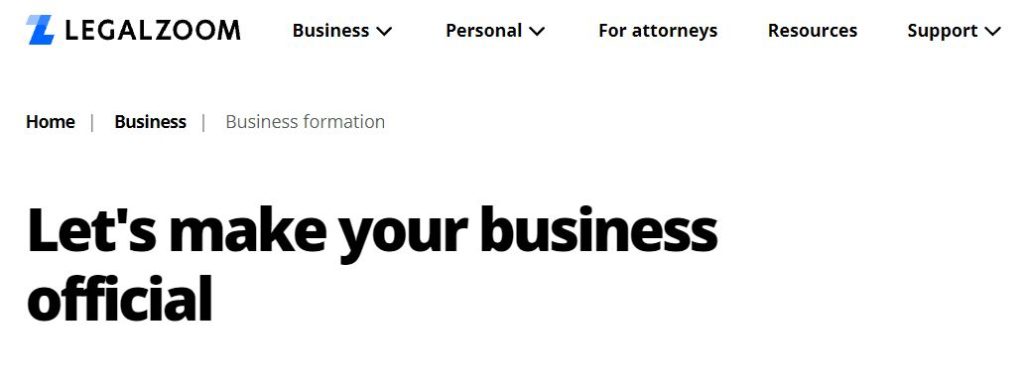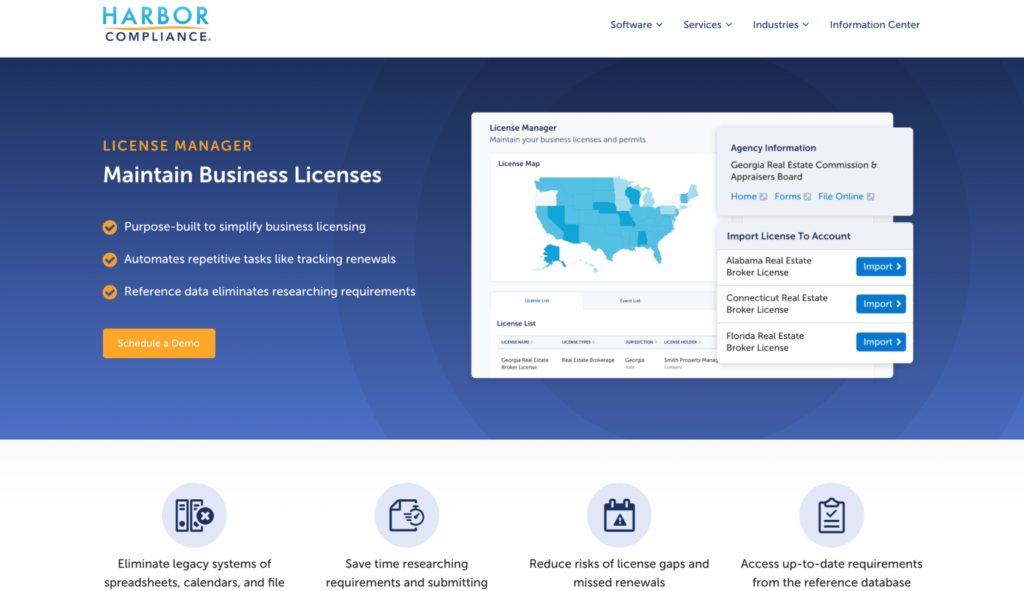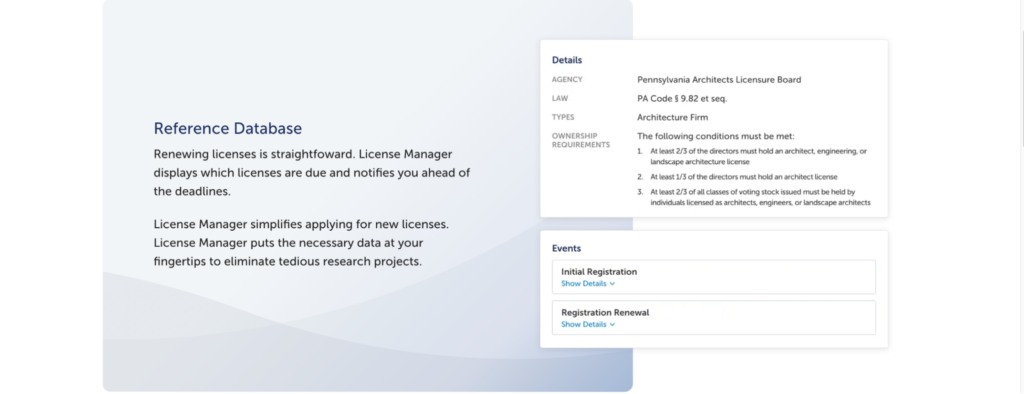Disclosure: This content is reader-supported, which means if you click on some of our links that we may earn a commission.
Business licenses and permits are government-led initiatives to protect consumers and keep operations transparent. That’s why business license registration is a prerequisite to operate your business legally in the United States.
While virtually every small business needs some type of license or permit from state officials, the requirements and fees vary based on the type of business, its location, and applicable government regulations.
Why Registering for a Business License Is Worth It
A business license is an official document that certifies a business is safe for the public.
Lawyers and doctors are professional and reliable. Restaurants are clean and serve quality food. New drugs are safe for consumption and effective.
It’s like a stamp of approval from the government.
For a new business founder, getting a business license gives them credibility. Customers are more likely to trust licensed businesses when purchasing goods and services. They view a business license as reassurance that they are dealing with an actual company they can trust and not a scam.
Also, registering for a business license makes it easier to qualify for funding from financial institutions and third parties, as the license demonstrates the state or city approves of your business venture. As we said, it’s a stamp of approval.
Tax compliance is another benefit. With a business license in place, entrepreneurs can easily keep up with the taxes owed to the government, keeping them out of legal and financial trouble. Many businesses are required to pay federal and state taxes quarterly. Therefore, paying taxes to keep the license current also serves as a reminder to pay other taxes due.
Getting a business license is the last and final step in ensuring your organization has completed all the steps needed to start operations.
The Investment Needed to Register for a Business License
The cost of registering for a business license varies by state—and sometimes, even within states, depending on the type of license your business requires. In general, you’ll pay a processing or filing fee for your license in addition to the cost of the license itself.
Typically, licenses can cost anywhere from $50 to hundreds of dollars based on your business type and location. What’s more, if your license has an expiration date, you’ll have to pay renewal costs, too.
For instance, when you open a daycare center in New Jersey, you’ll need a three-year license that costs between $110 and $250, depending on the size of your center. After your license expires, you’ll have to pay the same fee again to renew.
On the other hand, applying for a business license in Alaska costs $50 for a one- or two-year license. You’ll pay the $50 again for renewal once your license expires.
Keeping the variable nature of business license costs and licensing requirements in mind, it’s best to check with the appropriate issuing agency to know exactly how much you need to pay to obtain your business license.
What Should You Do First: Form Your Company or Obtain a Business License?
You should form your company before applying for a business license because why complicate things?
Forming a company first makes sense because you’ll need your business’s legal name when filling out your business license registration form. If you register your company after getting your business license, you’ll have to request a change of business name with the licensing agency, which would be time-consuming and tedious. Besides the unnecessary effort, you’ll have to pay a fee.
If you include the business formation in your costs, the price goes up. You can use an online formation service like LegalZoom, where pricing starts at $79 plus the state filing fees.

5 Steps to Register for a Business License
Finally, the most important part!
Read on as we give you a step-by-step rundown of getting a business license for your company.
Step 1: Determine What Business Licensing Applies to Your Business
Do some research to determine what licenses apply to your business at the federal, state, and local levels. Contacting the relevant agencies in the location where you plan to do business is a good starting point.
Registering for a business license is a time-intensive process. Many government agencies don’t have functioning phone services or websites. But this is an initiative you want to take as the consequences of running an unlicensed business include hefty fines, lawsuits, and sometimes, even total business shutdown.
Disclaimer: Don’t start the business license registration process before you receive an EIN from the IRS. You will need an EIN for filing purposes when seeking other business licenses.
Step 2: Sort Out Your Business License Documents
You find yourself dealing with several applications when applying for a license. Please call attention to each one of them to understand what documents you need to submit and how.
Again, the documents you need will depend on the license type, the nature of your business, and any specific regulations enforced by the applicable government agency. For context, however, you can expect to need the following documents:
- A description of your business and its planned activities
- Address of the physical premises where you plan to do business
- Copies of all critical corporate records, including articles of incorporation or corporate bylaws
- Proof of state or local tax status, such as a sales tax permit
- Lists of ownership and management
In addition, you’ll also have to pay a filing fee to the government. This can range from a few dollars (if a local permit) to a few hundred—or even thousands—of dollars (for state-level licenses).
If you’re applying for a business license in specific industries, such as construction or architecture, you’ll need additional documentation. This includes:
- Proof of insurance
- Surety bonds
- Educational or professional qualifications of all owners and the staff
- Audited financial statements
- Proof of operating capital
You may also have to appoint a corporate registered agent to receive service of the process on the company’s behalf. Many states allow you to be your own registered agent, but hiring a third-party registered agent service is better for your peace of mind. We have compiled a comprehensive guide to help you understand each state’s registered agent requirements. You can check it out here.
If all this feels too intimidating, you can consider signing up with a license manager. Harbor Compliance is a business development service that aims to simplify business and non-profit compliance.
You can sign up for Harbor Compliance’s License Manager software that offers a purpose-built solution to simplify business licensing and automate repetitive tasks like tracking renewals. It puts the necessary data at your fingertips to eliminate tedious research, making it easier to apply for new licenses.

Step 3: Apply for Your Business License
At this stage, you should know what business licenses apply to your business and what documents you need to make the official filing.
Next, it’s time to fill out and submit your application. Each business license application is different, so you have to be very careful and follow the instructions exactly.
Preparing applications and attaching the necessary documents is only one part of the process. Every government agency has its own process for filing applications. For instance, some agencies may require you to apply for your business license by mail, email, or online. Some may prefer you to come in person.
Besides this, there might be situations when your application needs signatures from multiple parties and a notary. You may have to submit original forms (or duplicates or triplicates) as well.
Remember: follow all application instructions.
Step 4: Receive Your Business License
Once you’ve submitted an application to register for a business license, you’ll either receive immediate approval or have to wait back from the licensing agency about the licensing status.
Many agencies take weeks or months to approve applications—and that’s assuming you completed your business license application correctly with no errors or typos.
Be prepared to contact government agencies after submitting license material to check your approval status. You can also correct deficiencies promptly this way.
Considering the overall time it takes to procure a business license, you should research and obtain the necessary licenses and permits during the Business planning process rather than waiting for a project or business opportunity to surface. What’s more, it’s also possible that the license you want is unavailable.
You see, several industries only permit a limited number of licenses within a specific city or state, meaning you can end up on a waitlist when applying for a business license. This is particularly common for restaurants wanting to serve alcohol or companies wanting to dispose of certain types of waste.
Step 5: Stay On Top of Business License Renewal Requirements
Once your application is approved and you receive your business license, you’ll have legal permission to conduct your business operations.
Most licenses have an expiration date. You must keep up with your license renewal formalities to avoid accidentally letting your license expire.
If you miss even one item, your organization may be fined, or worse, shut down until you get your business license renewed. While you sort out the paperwork, not only do you lose sales and money, but you’re also carrying forward all the standard business expenses, including salaries, rent, insurance, among others.
Keeping the consequences in mind, it’s much better to stay on top of your business renewal requirements and get your license renewed on time.
Again, you won’t have to worry about missing deadlines if you decide to use a license managing service. Harbor Compliance has an intuitive dashboard that automatically displays which licenses are due and sends you renewal notifications ahead of the deadline.

Next Steps
So that was all you needed to know about registering for a business license.
Contact the relevant authorities to find out about the licenses and permits that apply to your business. Follow this up by collecting the documents you’ll need to make an official application.
Once you get your business license approved, make sure you implement the necessary system to never miss renewal deadlines. You can either sign up with a license managing service or set reminders on your devices—anything works as long as you don’t forget to renew your business license.
To know more about forming and running a business, make sure you check the following Crazy Egg guides:















